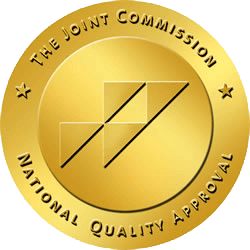Mental health professionals founded cognitive-behavioral therapy on the concept that negative thoughts generate negative feelings. These feelings about the self and reality contributed to any individual’s issues. Since its conception, cognitive-behavioral therapy, also known as CBT, has become a very popular type of psychotherapy. Therapists often use CBT as a treatment for those struggling with substance abuse. Addiction counselors who specialize in cognitive-behavioral therapy attempt to teach participants how to recognize and stop these false beliefs. Individuals of all ages can develop an addiction, including teens. Often, they justify their addiction by minimizing conflicting beliefs. This is done through the acquisition of new beliefs that make them feel less responsible for their actions. Successfully treating teens struggling with substance abuse through cognitive-behavioral therapy involves changing their thought patterns.
An Addiction to Negative Thoughts
An addiction to negative thought patterns can be just as strong as an addiction to drugs or alcohol. Patients entering into cognitive-behavioral therapy often begin a session by claiming they are victims who have never been given a fair chance by society. Impaired motivation, the inability to learn from mistakes, and extreme frustration and anxiety characterize learned helplessness. This is when you think you no longer have control over adverse events. By employing CBT methodologies, therapists attempt to challenge unsubstantiated perceptions. They carefully reveal the inconsistencies of beliefs not based on objective facts. Cognitive-behavioral therapy demonstrates the following concepts to individuals struggling with substance abuse:
- That unexpected events or the actions of others are not the cause of negative feelings. Instead, “bad” feelings emerge from the way a patient perceives another person’s physical or verbal actions.
- Learning self-monitoring skills will help patients cope rationally with triggers that could lead to relapse. These skills include redirecting negative thoughts with distraction and using natural methods of reducing stress (meditation, breathing techniques, and visualization).
- That accepting situations without allowing strong emotions to distort an objective assessment of the situation lets patients use their coping skills more effectively.
- CBT complements psychotherapy’s education model. It shows the majority of emotional and behavioral reactions to stressful events are learned reactions and can be unlearned.
Also, cognitive-behavioral therapy logically addresses mental health issues common to individuals struggling with addiction, such as severe depression, panic disorder, and phobias. CBT tends to impress and empower patients through the positive effects it has on their recovery process and overall well-being.
Cognitive-Behavioral Therapy and Thought Diaries
The structured and instructive methodology binding cognitive-behavioral therapy concepts promotes the efficacy of “homework” assignments given to patients by their therapist. Often, patients keep a diary of their thoughts throughout the day so that a CBT counselor can show them specific patterns and paradigms embodying their beliefs. Cognitive-behavioral therapy sessions involving thought diaries allow patients to explore the origins, meanings, and inaccuracies of their thoughts, which furthers their ability to eliminate addictive behaviors and, ultimately, the controlling power of self-destructive thoughts partially responsible for addiction.
Cognitive-Behavioral Therapy at Destinations for Teens
Through cognitive-behavioral therapy, teens learn that substance abuse is a learned behavior. It is one they acquire through operant conditioning. However, these behaviors can be successfully modified by applying a learning-based intervention, such as CBT, that comprehensively addresses interpersonal and intrapersonal situations fueling substance abuse. At Destinations for Teens, we strive to help young people overcome substance abuse through our teen substance abuse treatment programs. We offer a variety of therapeutic services in addition to cognitive-behavioral therapy, including:
If you or your loved one is suffering from substance abuse, cognitive-behavioral therapy can help you overcome your addiction. For more information about our teen treatment centers and how CBT can help treat addiction, contact Destinations for Teens today at 877.466.0620. References: http://onlinelibrary.wiley.com/doi/10.1111/j.1540-4560.1983.tb00143.x/abstract http://www.edpsycinteractive.org/topics/behavior/operant.html


